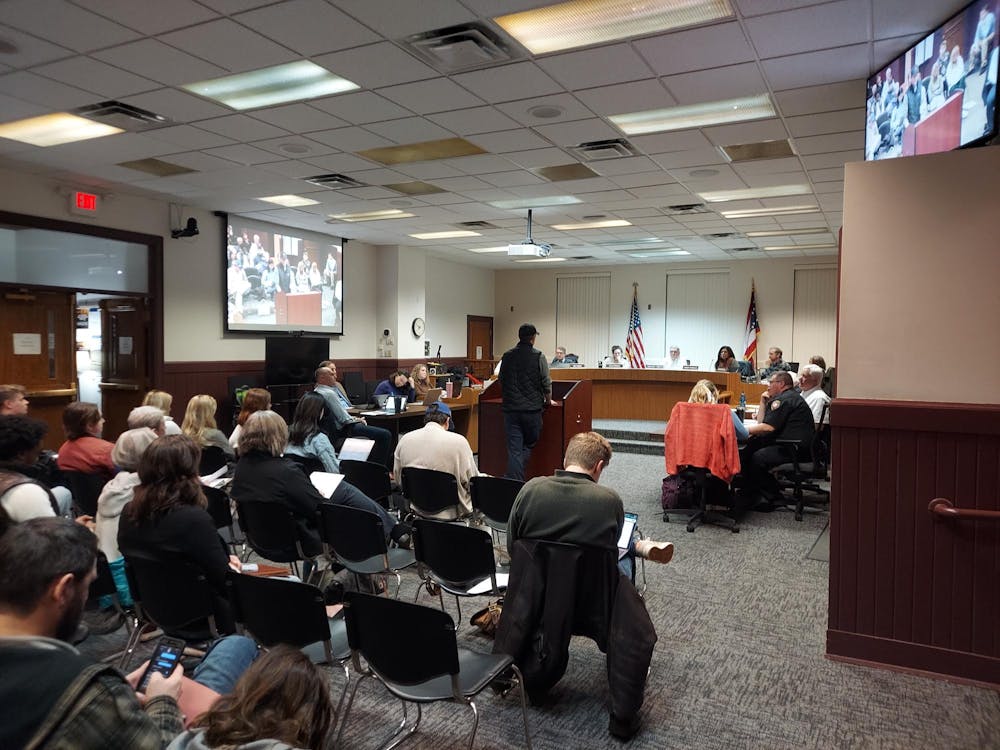With Ohio Senate Bill 83 pending, there are many things students and faculty can do to have their voices heard. At a lecture in Williams Hall Monday night, students and faculty listened as Rosemary Pennington, a journalism professor at Miami, and Nathan French, a religion professor at Miami, discussed some of the actions people can take.
“Our goal this evening is to not engage in covert political action,” French said. “We're mindful of our roles and capacity, so this is really to teach about how has this bill came to be from what we understand and what developments it has undergone.”
French said people on the left and right of the political spectrum have concerns with this bill. It is not just a liberal or conservative problem.
Testify
One way to help is a formal written testimony or in-person remarks. A testimony could come in the form of a witness slip, which is a person’s or group's personal position on a bill.
There is a general testimony for family and community members as well as students and faculty. All testimonies only last five minutes.
“If you do give testimony, whether it's written or oral, the thing to consider is what is it in the bill that you connect with and that you have concerns about and make that concrete,” Pennington said. “Don’t go in and do a vague testimony.”
Talking to neighbors, family, friends, alumni and anyone not affiliated with Miami University about the bill can also go a long way.
Write or Call
French said there is a parallel companion in Ohio’s House of Representatives called House Bill 151 (H.B. 151). This bill essentially speeds up S.B.83’s movement through the Senate.
French said people should call Ohio state representatives and senators or submit written communication on the web page of your representative or senator. It is best to call on days when there are hearings and testimonies because it will stay fresh in the legislator’s office and staff’s minds.
“There are all sorts of avenues for posting new pieces,” French said. “You can post discussions to social media, you can read articles, you can discuss with family and friends [and] teach others the sort of material that we're going to be speaking about.”
Enjoy what you're reading?
Signup for our newsletter
Pennington and French have written an op-ed piece for The Miami Student, and Pennington wrote one for the Columbus Dispatch.
Learn
“There's lots of ways to get involved, depending on what you feel comfortable doing,” Pennington said, “but I think the important thing is to educate yourself.”
To learn more about the Bill and inform students, faculty, colleagues, family and others about it, Pennington urged the audience to read the bills, whether that is from the Ohio Legislature website or from analyses in local newspapers.
“There are ways of engaging in these conversations that are not just taking a yes or no stance on the bill, but really enriching the community conversation around laws,” French said.
Gabrielle Byrd, a sophomore journalism and social justice major, attended the talk to hear what the professors thought about it and what other people were saying.
“I learned that even though this bill feels impossible to stop, with extra pressure and push from students, voters, family members, faculty, etc. change can be made,” Byrd said.




